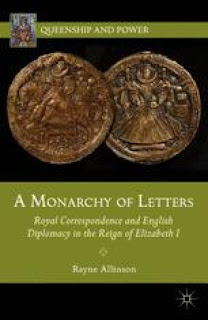Wednesday, 25 November 2020
Sunday, 22 November 2020
Post Pandemic Utopian Society
My last subject has left me depressed and since I am already practically in quarentine, which in it self is depressing enough, I am changing my topic. I have decided to leave my interpritations for the time being and blog about a more hopeful topic, Utopia.
Utopia is pretty much my favorite topic. I have written a book that is more of a practical guide to living in a Utopian society. I have shared portions of that book in prior posts.
The interpritations I recently posted are the reasons why I wrote the book in the first place.
I know that this book will in some form be part of my future.
The Venus project has always interested me and I have a bit of a crush on Jacque Fresco, the founder.
Amoung other things, this organization is a resource based economy, whereas the colony I have written about is a Christian communal corporation.
I am going to hand write my thoughts and interpritations about the successes and perhaps the failures of the Venus Project.
Saturday, 21 November 2020
National Portrait Gallery London: Napoléon Bonaparte
Friday, 20 November 2020
Wednesday, 18 November 2020
FRANÇOIS ESCLATINE
NPR: A Decade Ago, Suicides Rocked A French Telecom Firm. Now Its Execs Stand Trial
Union members gather in front of a Paris
courthouse on May 6, as several former senior employees of the then-named
company France Télécom go on trial for alleged "moral harassment," a
decade after a series of suicides occurred at the firm between 2008 and 2009.
Lionel
Bonaventure/AFP/Getty Images
France 24: France Telecom and its former CEO Didier Lombard found guilty over worker suicides
The Lombards or Langobards were a Germanic people who ruled most of the Italian Peninsula from 568 to 774.
The medieval Lombard historian Paul the Deacon wrote
in the History of the Lombards (written between 787 and 796)
that the Lombards descended from a small tribe called the Winnili,[2] who dwelt in southern Scandinavia[3] (Scadanan) before migrating to seek new lands. Roman-era
authors however reported them in the 1st century AD, as one of the Suebian peoples, in what is now northern Germany, near the Elbe river. By the end of the 5th century, the Lombards
had moved into the area roughly coinciding with modern Austria and Slovakia north of the Danube river, where they subdued the Heruls and later fought frequent wars with the Gepids. The Lombard king Audoin defeated the Gepid leader Thurisind in
551 or 552; his successor Alboin eventually
destroyed the Gepids in 567.
Following this victory, Alboin decided to lead his people to Italy, which had become severely depopulated and devastated after the long Gothic War (535–554) between the Byzantine Empire and the Ostrogothic Kingdom there. In contrast with the Goths and the Vandals, the Lombards left Scandinavia and descended south through Germany, Austria and Slovenia, only leaving Germanic territory a few decades before reaching Italy. The Lombards would have consequently remained a predominantly Germanic tribe by the time they invaded Italy.[4]
The Lombards were joined by numerous Saxons, Heruls, Gepids, Bulgars, Thuringians, and Ostrogoths, and their invasion of Italy was almost unopposed. By late 569 they had conquered all of northern Italy and the principal cities north of the Po River except Pavia, which fell in 572. At the same time, they occupied areas in central Italy and southern Italy. They established a Lombard Kingdom in north and central Italy, later named Regnum Italicum ("Kingdom of Italy"), which reached its zenith under the 8th-century ruler Liutprand. In 774, the Kingdom was conquered by the Frankish King Charlemagne and integrated into his Empire. However, Lombard nobles continued to rule southern parts of the Italian peninsula well into the 11th century, when they were conquered by the Normans and added to their County of Sicily. In this period, the southern part of Italy still under Longobardic domination was known to the foreigners by the name Langbarðaland (Land of the Lombards), in the Norse runestones.[5] Their legacy is also apparent in the regional name Lombardy (in the north of Italy).
Tuesday, 17 November 2020
San Lazzaro degli Armeni: Lido, Italy
Mona Selyan collection (part 2) - Toronto: by Cassandra Tavukciyan, 26 August 2019.























































